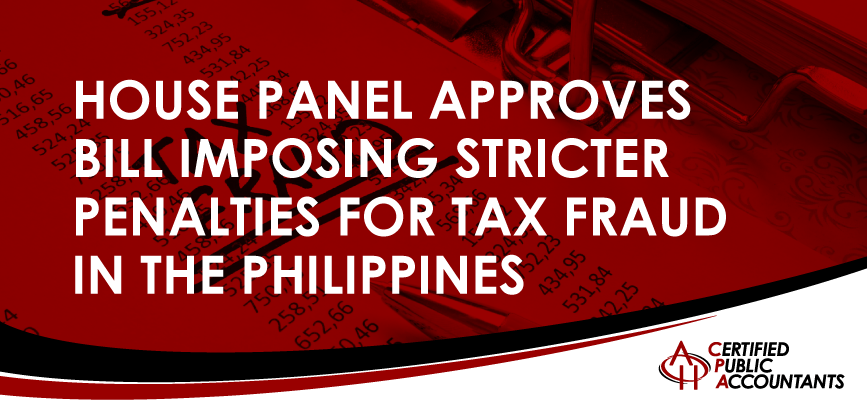
House Panel Approves Bill Imposing Stricter Penalties for Tax Fraud in the Philippines
The House Ways and Means Committee approved a measure that seeks to impose stricter penalties on tax racketeering, including selling counterfeit receipts to obtain lower income tax and VAT liabilities.
Albay 2nd District Rep. Joey Salceda sponsored House Bill (HB) No. 7653, which aims to target the act of “coordinated” tax fraud with stiffer penalties under the National Internal Revenue Code. The consequences include 17 to 20 years of imprisonment.
Salceda discussed, “When persons or corporations deliberately choose to employ illegal means and misrepresent expenses and records in order to avoid paying taxes, the government loses billions of revenues that could have funded much-needed public services for Filipinos.”
Salceda added that the government cost at least ₱100 billion in revenue due to tax evasions, including adding deductions and inputting tax credits with the “systematic and fraudulent use of fake receipts and other records.”
Salceda explained, “Such nefarious activities must be defined and criminalized since it constitutes economic sabotage, following the doctrine that taxes are the lifeblood of the state.”
The HB also punishes government officials who served as accomplices with perpetual disqualification from public office and 10 to 17 years of imprisonment. Moreover, a two-year prison term is a current penalty for tax fraud through fake receipts.
Providing feedback during the committee hearings on the HB was the Bureau of Internal Revenue (BIR). BIR Commissioner Romeo Lumagui stated during the Tuesday hearing that the bureau has filed complaints against at least four corporations in an “initial filing of cases” with the Department of Justice (DOJ).
In addition, the BIR launched the Run After Fake Transactions (RAFT) task force in April which targets the proliferation of fake receipts.
Lumagui noted, “The primary objective of RAFT is to put an end to the purchase of ghost receipts for tax evasion purposes. What started out as a small-time operation several years ago, perhaps as early as 2009, has evolved into a wide scale economic sabotage.”

